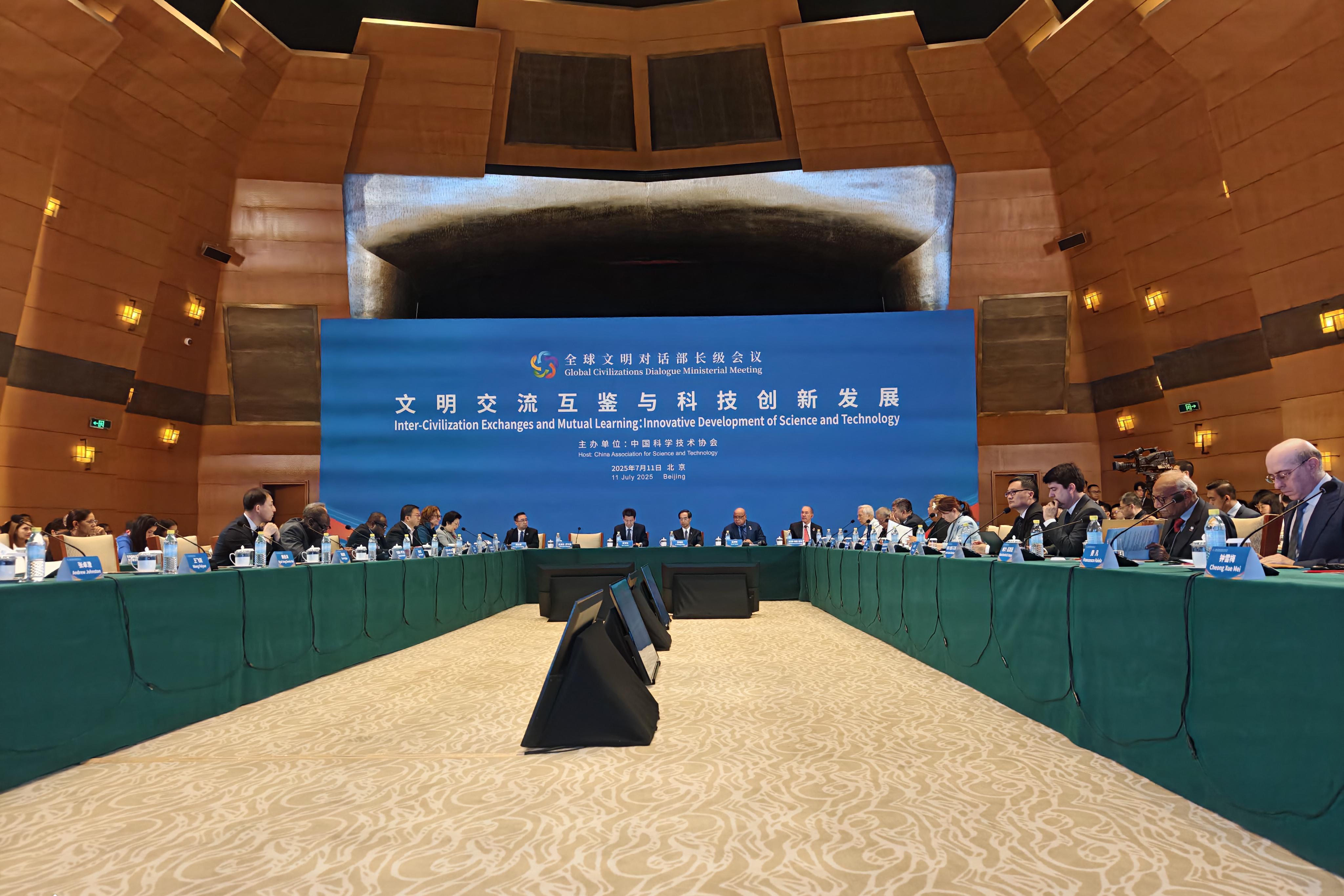Harnessing Sci-tech Cooperation for Civilizational Exchanges

From conducting research to composing poetry... AI's range of abilities grows ever broader. As silicon-based intelligence increasingly intertwines with carbon-based life, how can we better ensure steady and sustainable development of human civilization?
Centering on the opportunities and challenges for human civilization in the age of AI, a parallel sub-forum themed "Inter-civilization Exchanges and Mutual Learning: Innovative Development of Science and Technology" was held during the recent Global Civilizations Dialogue Ministerial Meeting in Beijing.
The participants widely agreed that only through exchange and cooperation can we bridge the digital and intelligent divides, transcend estrangement and conflict, and share the fruits of sci-tech innovation and civilizational prosperity.
Championing cooperation and inclusiveness
"Science and technology serve as a crucial bond for inter-civilization exchange and mutual learning, while civilization plays the role of a 'moral compass' during sci-tech advancement," Malaysia's Minister of Science, Technology and Innovation Chang Lih Kang said.
He noted that the Global Civilization Initiative proposed by China responds to the pressing concerns of the times and represents a vivid practice of the concept of a community with a shared future for mankind. Malaysia looks forward to strengthening sci-tech cooperation and people-to-people exchanges with China, especially in fields like AI and cultural heritage preservation.
From the knowledge exchange of astronomical calendars and mathematical algorithms along the ancient Silk Road, to the collaborative efforts today in joint archaeology and digital infrastructure under the Belt and Road Initiative, sci-tech cooperation has transcended the confines of time, space and cognition, drawing different civilizations closer.
"Roll out the mat so the family can dialogue," Lord Vaea, chairman of the Committee on Tongan Traditions, invoked this local proverb to underscore the importance of resolving differences through dialogue. He said the forum provided an important platform for diverse civilizations to exchange ideas, which is crucial for exploring how to narrow development gaps in the AI era and achieve shared civilizational flourishing.
"Technology is a catalyst for civilizational progress, while civilization serves as the guardrail steering technology for good," according to Liu He, academician of the Chinese Academy of Engineering, and professor at the Research Institute of Petroleum Exploration & Development.
Liu stressed that global challenges such as energy issues cannot be solved by any single nation or civilization alone. Sci-tech cooperation and inter-civilization exchange should seek common ground while reserving differences, building consensus through dialogue, and advancing cooperation through mutual learning. He called for establishing an open, inclusive, and universally beneficial cooperative ecosystem to ensure sci-tech achievements better benefit all.
Path to harmonious coexistence
Standing at the crossroads of AI development, the attendees emphasized the need to fully leverage the bridge-building role of sci-tech cooperation to broaden the depth and breadth of inter-civilization exchange and mutual learning.
"Science is a common language shared by the entire world, and also one of the most effective tools for fostering international cooperation and exchanges," according to Jiao Nianzhi, academician of the Chinese Academy of Sciences, and chair professor at Xiamen University.
Jiao deeply believes that big science programs are not just platforms for sci-tech cooperation and exchanges, but also windows for inter-civilization dialogue. Faced with existential issues like global climate change, dialogue and cooperation are the only path forward.
Javier García-Martínez, past president of the International Union of Pure and Applied Chemistry, pointed out that AI is now involved in the most exciting scientific research underway. Addressing ensuing ethical, fairness and inclusiveness issues requires pooling wisdom and efforts to ensure AI contributes to sustainable development and human civilizational progress.
"Engineers and scientists are not just building tools, but building the next chapters of civilization," Navinchandra B. Vasoya, executive council member of the World Federation of Engineering Organizations, said. He stressed that in the shared journey of human and technological co-evolution, the role of inter-civilization empathy, learning and collaboration becomes paramount. It must reflect not the dominance of a single worldview, but the harmony of many.
The consensus forged through this dialogue will provide valuable insights for the exchange and mutual learning of human civilizations.







